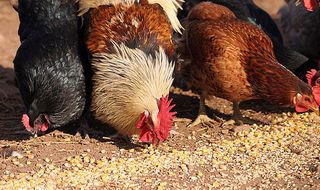
I have taken some time off to grieve my mother, who died four weeks ago. I have common symptoms of grief: fatigue, difficulty concentrating, a heaviness in my body compounded by unbridled eating. I cry when I let myself think about Mom, and sometimes the tears rise up unexpectedly, simply a wave of grief.
I’m lucky to be able to have time to adjust to my new world, and I relish the time. I get some important things done: write all the checks for my estimated taxes, so I won’t forget to send one September 15, as I usually do. I finish writing an article that helps me see my brief first marriage in a kinder light. I take time to look at the patterns in my blood sugar and adjust my insulin dose based on the advice I learn is available from my continuous glucose monitor. In other words, I allow myself to take care of some basics: my finances, my self-esteem, my physical health. My mother would be glad that I’m taking care of myself in the midst of missing her.
I’m more aware of life around me too, more open. I know from a past experience of grief that this is a rich time, a time of growth if I permit myself to be open. In the last few days, I’ve been aware of big life experiences happening all around me.

A couple of days ago I gave a man in the poker gang a ride to the game. When I arrive, he comes out of his apartment slowly, walking cautiously down the steps and along the snowy path. I go to meet him, and realize that this man, 6’2” and 185 pounds of muscle, might die before we got him in the car: he is dizzy, breathing heavily, frightened. I say I’m calling an ambulance, but he is firm: “Let me get in the car and see if things settle down.” He’s 89 years old and used to running the show; I listen when he asserts himself. Having hospice experience, I know a little bit about end-of-life issues, and I value the choices people make as they age. I don’t know if my poker player friend is thinking, “I’d rather die on my way to poker than on my way to the hospital,” but his actions suggest that that is part of his philosophy. And instead of dying, he wins every hand at the game. Now that is a celebration of life!

Yesterday I emailed my friend Leah about the birth of her friend Susan’s baby. Leah has had a lot of loss in her life, including a miscarriage. Susan’s pregnancy, while wonderful, has been hard for her to witness, as is so often the case for women who have lost a baby. It’s hard to always be happy for someone who has what you want. Leah sends me a picture of the baby, with a message: “Good thing she’s so cute!” As I look at the photo, I think about the ambivalence in her humor. I know that she will love that baby fully, but for her, the baby’s birth is framed in sadness. Mixed feelings: so human, such a part of life.
Today I had a long conversation with my auto mechanic. We’re becoming friends: he helps me when I need someone to carry something heavy down the stairs, or when I have a load of stuff for Goodwill, he puts it in his truck and drops it off for me. He’s 20 years younger than I am, has a wife and child, and works really hard. He helps people because it’s the right thing to do. When I take the car into the shop this morning, he tells me he is feeling sick and stressed, and tentatively asks if he could talk with me sometime. When he brings the car back to me on his way home, I suggest we sit in the living room and chat for a bit. He lays his life out, and I think, “Wow, you are carrying so much!”

The bare bones: limited income, no health insurance, a stomach problem that he fears may be cancer, self-blame for not always having the money to buy his son a treat. He fears he isn't a good father because sometimes he doesn’t have the energy to read his child a bedtime story (because he has gotten up before dawn to bring in firewood, feed the animals, milk the goats, and walk the dogs before going to work where he does physical work all day before going home and bringing in more firewood, feeding the chickens and sheep again, and exercising the dogs). “I can handle a short story,” he says, “but some nights a long one puts me to sleep before he drops off.” He expresses a fear of dying and his sense that he hasn’t provided well enough for his family.
When I ask a bit about the fear of dying, he suddenly tears up and tells me that “more friends than I can count on my hands” have died of drug overdoses in the last ten years: heroin mostly, and a couple of DUI car crashes. He thanks God he didn’t ever try dope, or drink and drive. He casually adds that when he was 10, three neighbor kids were crushed in a car accident. “They were such good kids, much better than me.” He turns his face away and wipes his eyes, survivor guilt coming to the foreground. He says he’s not depressed, exactly, and I agree: he is future-oriented; has numerous protective factors and no suicidal thoughts; his spiritual beliefs sustain him. I suggest that perhaps he is pretty stressed, and tears spring to his eyes again. We talk about ways to manage anxiety: some practical adjustments in his life, and increasing the time he spends out in nature, his intuitive way of calming himself.
I point out that learning what’s going on with his stomach will allow him to address the problem and stop fearing catastrophe, and he agrees to go to the free medical clinic. “I feel better talking about this,” he says. And then, shyly, “I’m sorry I cried.” Tears suddenly come to my eyes. I don’t have children of my own, but if I did, I hope they would be like him: sensitive, kind, hard-working, good. “I’m glad you talked to me,” I say, looking straight at him without brushing away my tears. “To me, crying is a way of opening up, sharing a feeling, being human.” He thinks about that and then nods.
A few minutes later, when he’s home but not yet feeding the sheep, he texts me: “Thank you.” I think about what he has given me, by taking me into his confidence: a maternal role. I look over at the pot of bright tulips he and his wife gave me when my mother died. I know that when the time is right, he will transfer the bulbs to my front garden, where they will bloom again next spring.





